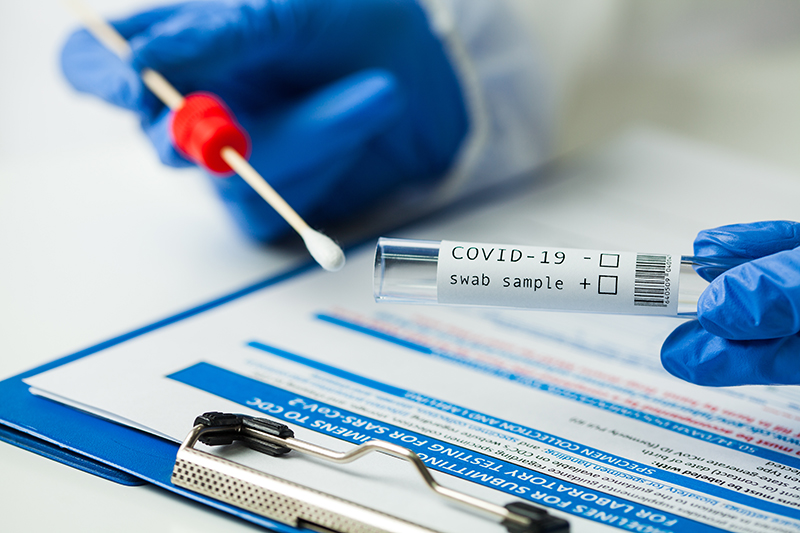DISCLAIMER: The following information is not intended to provide medical advice and is for informational purposes only. For any non-emergency health concern(s), contact your physician or visit an urgent care center where doctors can examine you and determine the best course of treatment. COVID-19 symptoms vary broadly and can range from mild to severe. In the event of an emergency, please proceed immediately to your nearest emergency room.
With today’s ongoing COVID-19 pandemic, which shows no sign of abating, for the millions of allergy sufferers in the United States, symptoms are a more nuanced discussion, particularly as we enter the upcoming allergy season in much of the country. This is relevant for patients and providers as well. When assessing symptoms, this article will discuss the differences between the two conditions.
The range of symptoms for COVID-19 is extensive, variant dependent and mutations can always present new challenges. Patients who are vaccinated but have a breakthrough infection, may experience different symptoms than those who are not vaccinated and symptoms often vary by patient. COVID-19 infection symptoms range from asymptomatic to mild upper or lower respiratory symptoms, to severe pneumonia.
COVID-19
The coronavirus (COVID-19) is a viral illness that is typically spread through aerosolization, that is airborne droplets spread by coughing or sneezing. Symptom’s onset occurs from 2-14 days after exposure and usually resolve within ~14 days.
COMMON COVID-19 SYMPTOMS
- Fever
- Dry cough
- Shortness of breath
- Intense fatigue, body aches
- Loss of smell
ALLERGIES
Allergy symptoms range from mild to severe and can occur seasonally or affect patient’s year- round. Things like pet danders, molds, etc. impact patient health even when things like plant pollens aren’t present so for healthcare providers and allergy sufferers, there is never a wrong time to test for allergies. For asthma sufferers, allergies can cause a cough, wheezing and shortness of breath. Allergies are caused by an immune response to normal things in your environment — such as pollen, dust, mold, pet dander — and are not contagious. The typical patient responds well to medications, both OTC and prescription. However, medications address the symptom and not the cause and treatment via allergy injections or sublingual therapy can often be curative.
COMMON ALLERGY SYMPTOMS
- Loss of taste
- Sneezing
- Runny or stuffy nose
- Itchy or watery eyes
- Post-nasal drip (which can sometimes cause a mild sore throat)
- Itchy nose, ears or skin
- Mild fatigue
For those patients who test negatively for COVID-19, if similar symptoms present, we strongly suggest healthcare providers test for allergies to confirm the cause and ease patient anxiety. Oasis Allergy can provide practices with a turnkey solution for both testing and treatment.
KEY POINTS TO DETERMINE ALLERGIES OR COVID-19 INFECTION
- Timeline and patient history.
- Often people with allergies have a history of seasonal allergies typically more prevalent in the spring and fall.
- Allergy symptoms tend to be more long-lasting than viral symptoms.
- Fever is the great differentiator. Fevers are a symptom of COVID-19 (or other illnesses such as the flu). It is not tied to allergy sufferers.
- A leading indicator is if the patient responds to allergy medications.
- Allergies typically make people itchy. Itchiness is not a symptom of viral illnesses.
- Patients with allergies may also suffer from asthma, which can cause coughing, shortness of breath, chest tightness and wheezing. While the aforementioned symptoms can be present in COVID-19, wheezing is uncommon.
COMMON SYMPTOMS OF ALLERGIES VS. COVID-19
| Symptoms | Allergies | Covid-19 |
| Body Aches | Rarely | Sometimes |
| Chills | No | Sometimes |
| Fever | No | Often |
| Headache | Sometimes | Sometimes |
| Nasal Congestion | Often | Sometimes |
| Runny Nose | Often | Sometimes |
| Sneezing | Usually | Rarely |
| Itchy/Watery Eyes | Usually | No |
| Dry Cough | Sometimes | Sometimes |
| Shortness of Breath | Sometimes | Sometimes |
| Wheezing | Sometimes | Sometimes |
| Loss of Smell/Taste | Mild | Sometimes |
| Sore Throat | Sometimes | Sometimes |
| Nasuea, Vomiting, Diarrhea | No | Sometimes |
Remember, whenever in doubt, seek medical care from your doctor, urgent care or local hospital.
